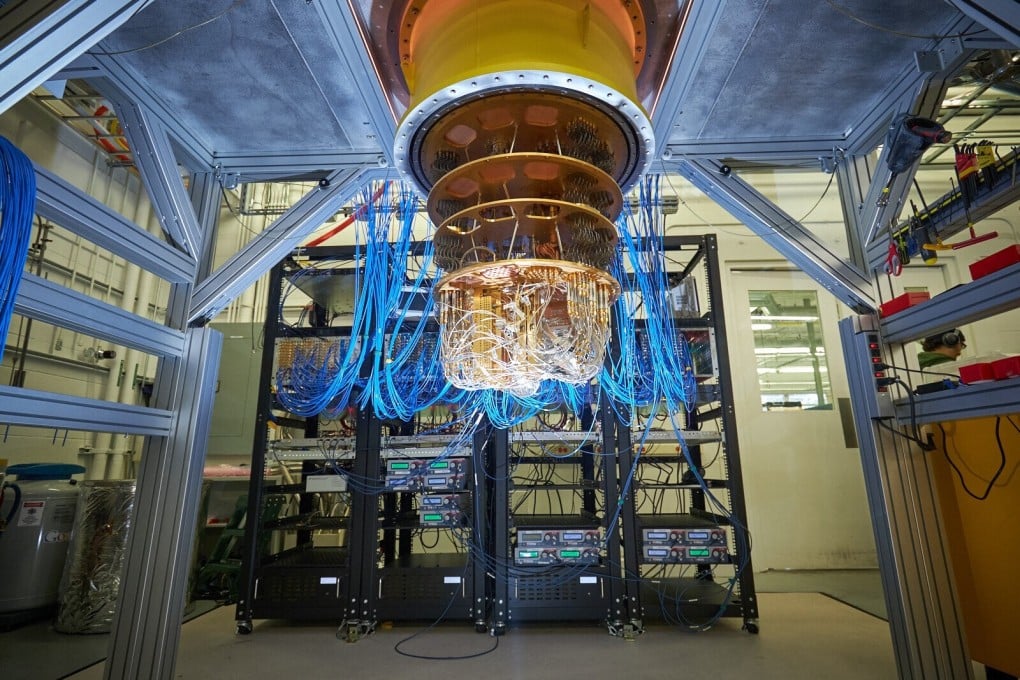Chinese scientists challenge Google’s ‘quantum supremacy’ claim with new algorithm
- US tech firm in 2019 said its Sycamore processor did a task in three minutes and 20 seconds that would take a classical supercomputer 10,000 years
- Researchers in Beijing say they took a different approach that saw 60 graphics processors complete the job ‘in about five days’

So-called quantum supremacy is a development milestone: quantum machines being able to perform a calculation that is beyond the reach of the most powerful conventional supercomputers.
Google in October 2019 said its Sycamore processor had become the first to achieve quantum supremacy by completing a task in three minutes and 20 seconds that would have taken the best classical supercomputer, IBM’s Summit, 10,000 years.
That claim – particularly how Google scientists arrived at the 10,000 years conclusion – has been questioned by some researchers. They argue that with alternative algorithms or settings, the supercomputer’s processing time could in theory be brought down to just days, meaning it would not be too far off what Google’s Sycamore achieved.